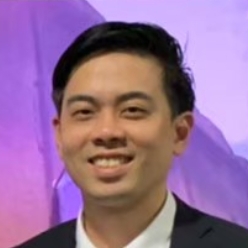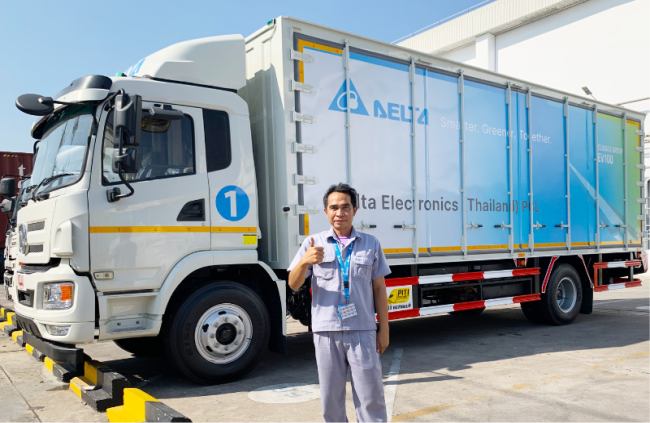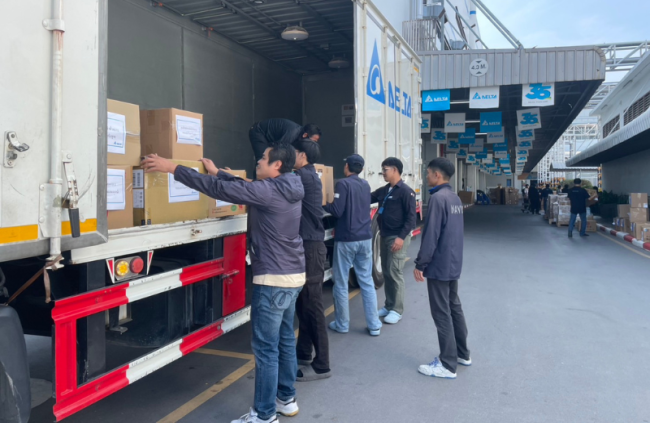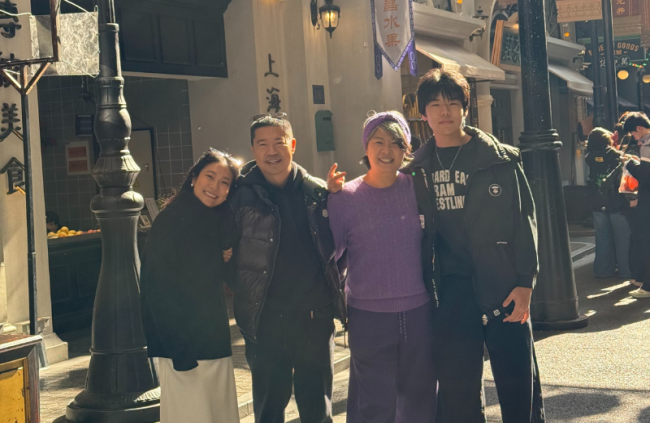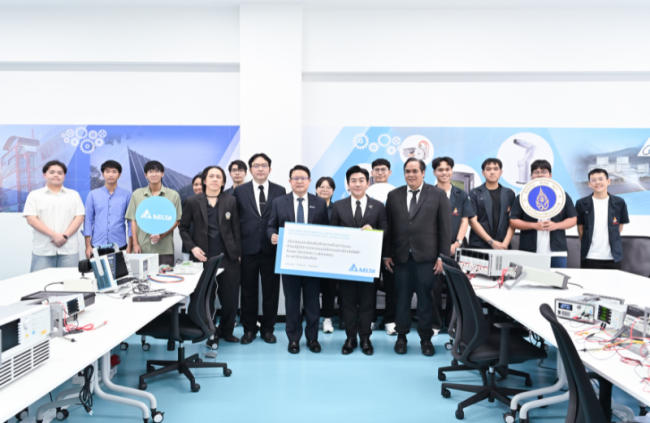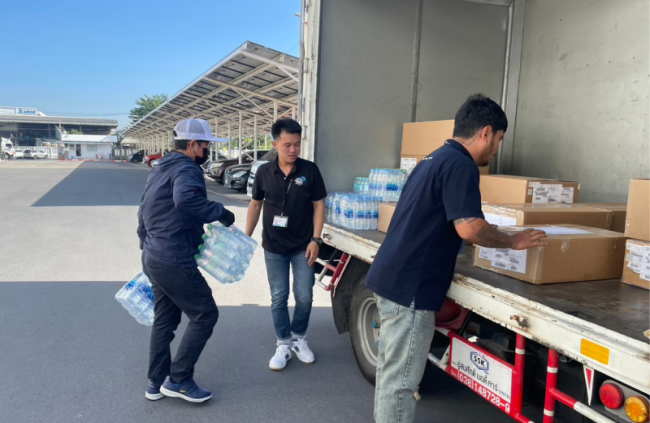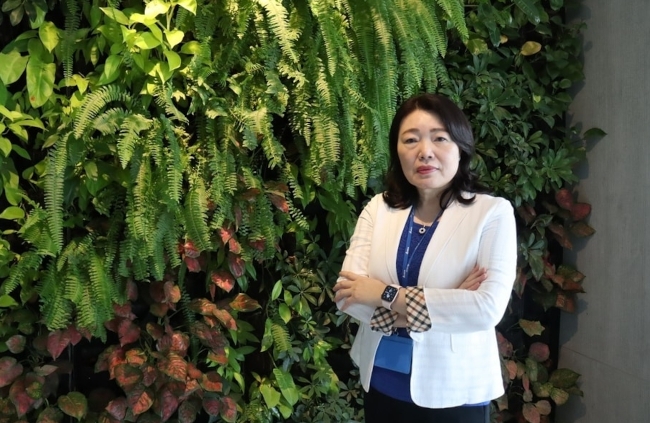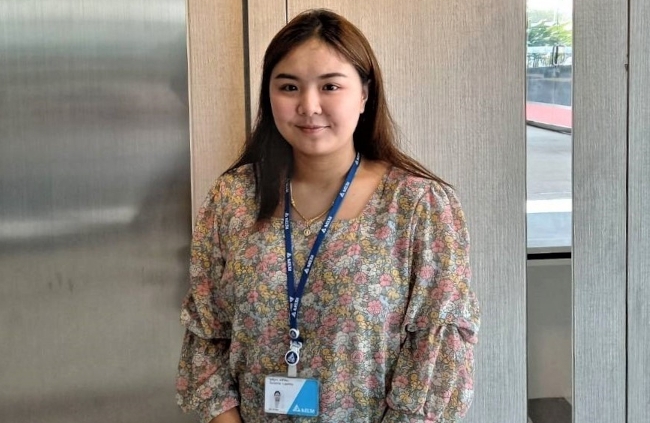Challenge Yourself to Grow: DET Regional Business Director on Building the Delta Brand in Thailand
By David Nakayama - Published March 18, 2021
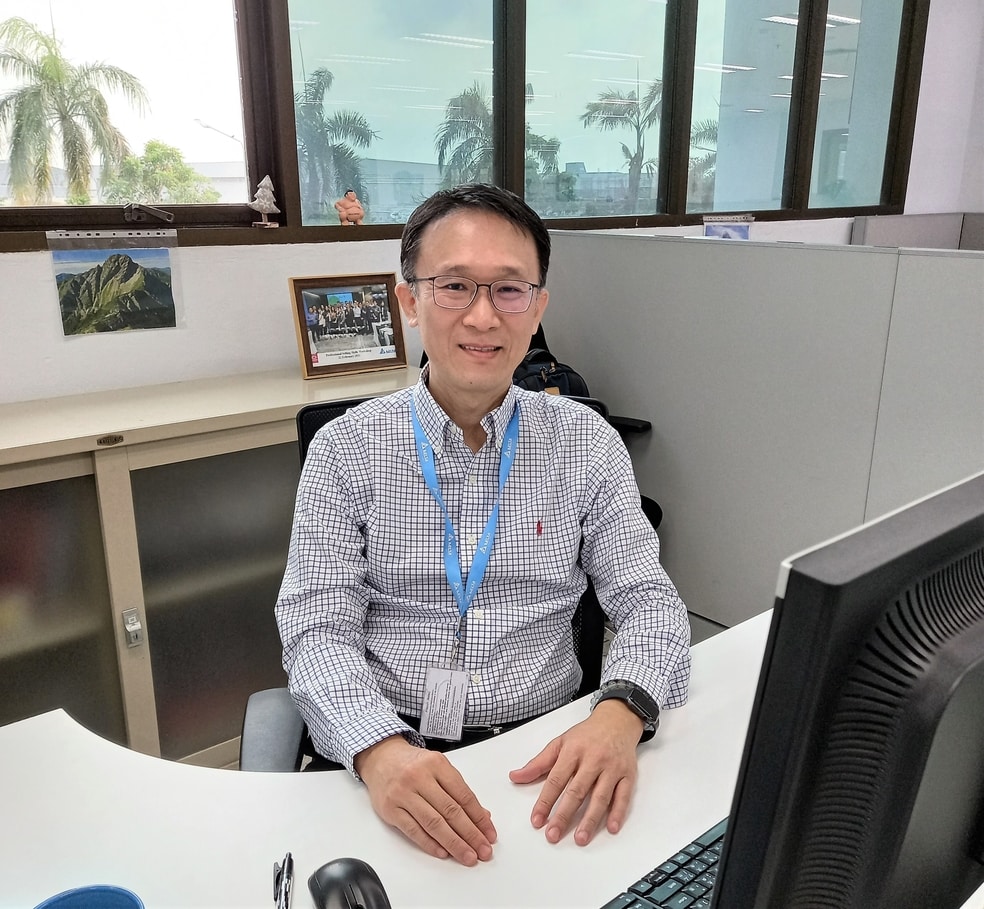 Interview of Mr. Curtis Ku, Delta Thailand Regional Business Director
Interview of Mr. Curtis Ku, Delta Thailand Regional Business Director
Text, Photos and Translation by David Nakayama, DET Corp Comms
Samutprakarn, Thailand, March 8, 2021- Besides our role as a Delta global manufacturing center, Delta Thailand (DET) is also steadily building a brand in the Thailand market based on a solid reputation for reliable products and localized solutions. As the leader of the local chapters of five Delta BUs, Curtis Ku draws on almost three decades of sales and business development experience in both OEM/ODM and Delta branded businesses.
OEM suppliers establishing their own original brand need daring leaders with the skills and vision to navigate uncharted waters. Recently, Curtis made some time in his hectic schedule to sit down and chat with me in Mandarin about his fascinating journey from sales executive to the country manager of Delta Thailand’s branded businesses.
He also shared his opinions on Delta Thailand’s branded business growth strategy and the importance of good leadership for both career development and organizational success.
You’ve been in Thailand for many years. Can you share with us about your background and career path to your current role at DET?
I joined Delta in 1992 after graduating from university in Taiwan with a major in Management Information Systems. At my job interview, I found out I would go overseas as a sales executive for EMI filters at Delta Thailand (DET). It was certainly a big life decision but I quickly accepted and started at the Delta Taoyuan plant. After a 5-month training moved to DET.
I started here under Sherry Wu who was DET Sales Manager of all products at the time and reported to our former president Dick Hsieh who was Sales VP at the time. I did order fulfillment for our ODM/OEM customers for 2-3 years before moving to handle our Cathode Ray Tube (CRT) monitors for a private label customer in Europe. The business really took off when we got some major US display brand customers. In 2002, I joined our power supply business to sell our notebook adaptors and power products for desktop, network and servers to a major US electronics brand.
From 2009-2013 I was assistant to our then-president Henry Hsieh. It was at this time that I began working with Delta’s branded businesses. From 2013-2016 I was assistant to Dick, who had become president, and oversaw our SEA UPS and data center business. In this period, I also completed an NTUT EMBA course in Thailand.
In 2016, I became the Thailand county manager for our Delta brand businesses of CIS, EVCS, ESS, PVI, BA and IAQ. Altogether we have 30 people on my five BU/BG teams which comprise sales and marketing, presales/after-sales engineers and administration.
What are the key differences between doing OEM/ODM sales and Delta branded business sales?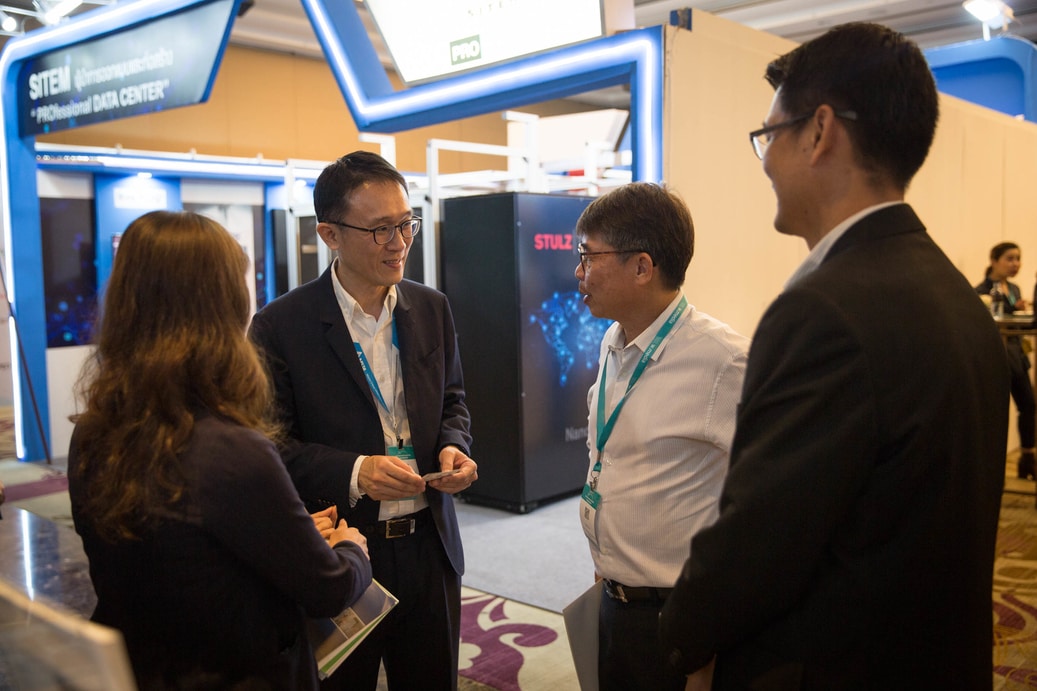 For me, the biggest difference between the two is the customer size and scale of business. Just one OEM customer can give you a couple of million dollars in business. On the other hand, branded business is much more fragmented. We need to find many more partners whether it’s for our moving box (product selling) or project base (solution selling) businesses. Each partner has their own project and each project is typically only 30-100K dollars and it’s extremely rare to have a large project worth up to one million dollars.
For me, the biggest difference between the two is the customer size and scale of business. Just one OEM customer can give you a couple of million dollars in business. On the other hand, branded business is much more fragmented. We need to find many more partners whether it’s for our moving box (product selling) or project base (solution selling) businesses. Each partner has their own project and each project is typically only 30-100K dollars and it’s extremely rare to have a large project worth up to one million dollars.
Besides scale, the requirements are very different. For example, OEM/ODM customers give you clear instructions on what they want in their products with all their specs and requirements to fulfill beforehand. In contrast, in our branded business, we need to explore and develop the products or solutions before we launch them in the market. This takes a lot of market research and development work on our side and sometimes we also need to integrate 3rd party technology into our solution to deliver more value to our clients.
Our product portfolio range is also crucial to convince our partners or customers to work with us. This all needs a lot of work with our partners on business development as well as our BU/BG in Taiwan who do our product & solution development.
While both types of sales are difficult, I think that branded business is more complex because we need to develop the product to meet the market’s current and future expectations, our sales channels are also diversified with different tiers of partners.
Our branded business isn’t focused on just mass-market products or high-selling models. Instead, we need to develop an entire product series and portfolio to meet a range of customer needs. For example, our EV charger portfolio has both AC and DC charging products with a large range in small to high power outputs.
Why is Delta Thailand branded business such a key part of our growth strategy, and how can we build the Delta brand in our region?
Our Thai branded business has a lot of untapped market potential. We’re in a growing and vibrant market in Southeast Asia and are implementing future trend solutions like EV charging, data center and smart city solutions.
Sales are at the front end so we are constantly catching technology advances that matter to our customers and then we feedback to the BU/BG product development cycle. We also share lessons from our solution implementation with our other regional partners.
Another reality is that Delta needs growth to be a viable organization. We already have a more or less fixed market share in our OEM business, especially in the ICT industry, so naturally, our growth momentum won’t be at the same rate as before. Despite this, we still need to chase strong growth and so expanding our branded business is helps. And as our Delta offerings leverage our core competencies, we can guarantee the best product performance in our class.
Competition in Southeast Asian markets is heating up, so how can Delta compete with global giants in our business sectors and become a recognized and trusted brand locally?
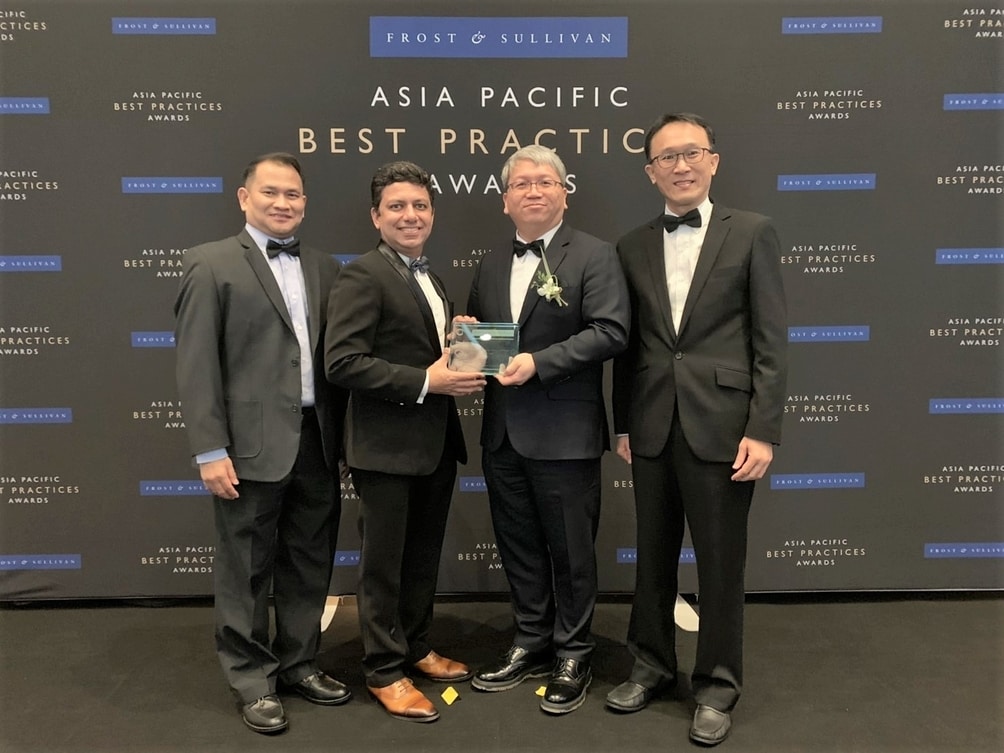 Of course, building our own Delta brand means we need to challenge huge well-known European brands. Yet over time, we’re slowly getting accepted by the Thai market. Our approach is geared towards first winning projects and building up a base of good reference cases one by one in the applications we focus on i.e. data center, EV charging solutions, smart manufacturing, building automation and indoor air quality.
Of course, building our own Delta brand means we need to challenge huge well-known European brands. Yet over time, we’re slowly getting accepted by the Thai market. Our approach is geared towards first winning projects and building up a base of good reference cases one by one in the applications we focus on i.e. data center, EV charging solutions, smart manufacturing, building automation and indoor air quality.
Besides projects, we also have fragmented sales but they are not the majority at this point. Again, our strategy requires quality distributors and partners who can work with us on brand promotion.
At this stage, I feel our brand awareness can come from strong success cases with key accounts and partnerships. Even with our channel-based moving box sales, we’d still want to leverage big cases with well-known brands. Because of the nature of our B2B business and present strategic focus, we aren’t focusing as much on ad marketing as much as on building our practical competencies.
Our challenge now is to find out how to develop our own products and solutions to match our market’s customer needs or sometimes even exceed our customer’s expectations like having more value-added features or a better solution than other players.
Our branded business customer base is very broad so we need to investigate market trends and find the specs that will meet future needs in terms of performance and features. We must predict and develop products and solutions proactively if we ever want to gain a competitive position in our market.
Of course, service capability in terms of availability and coverage is also critical to our success in Thailand. We have to choose the right 3rd party Authorized Service Provider (ASP) that can provide 24/7 localized service around the country.
What is the secret to your long service in Thailand, and can you share some tips for building a successful career overseas?
I arrived in Thailand on what was supposed to be a two-year mission and ended up staying for 28 amazing years at DET. At the time Delta didn’t have any formal contract of how long we would stay aboard. We just went and your managers would see if you were a good fit. How long you stayed was up to your manager and you.
I was very fortunate to have great bosses at DET who taught me how to deal with customers and excel in customer service fulfillment. Sherry was an aggressive sales leader who always led us to be the best. I’m also thankful for the invaluable opportunities to work directly under our presidents Henry, Dick and now Jackie. I learned so much from them about business strategy, setting up and growing a business brand.
Of course, family is very important for me. Having a family helps you to settle down, offers emotional balance from a spouse and children and teaches empathy along with other valuable life lessons. I strongly believe that families should stay together in the same country because a healthy family life plays a big part in the stability and wellbeing of expats working abroad.
What are the top qualities you look for in your business development and sales leaders?
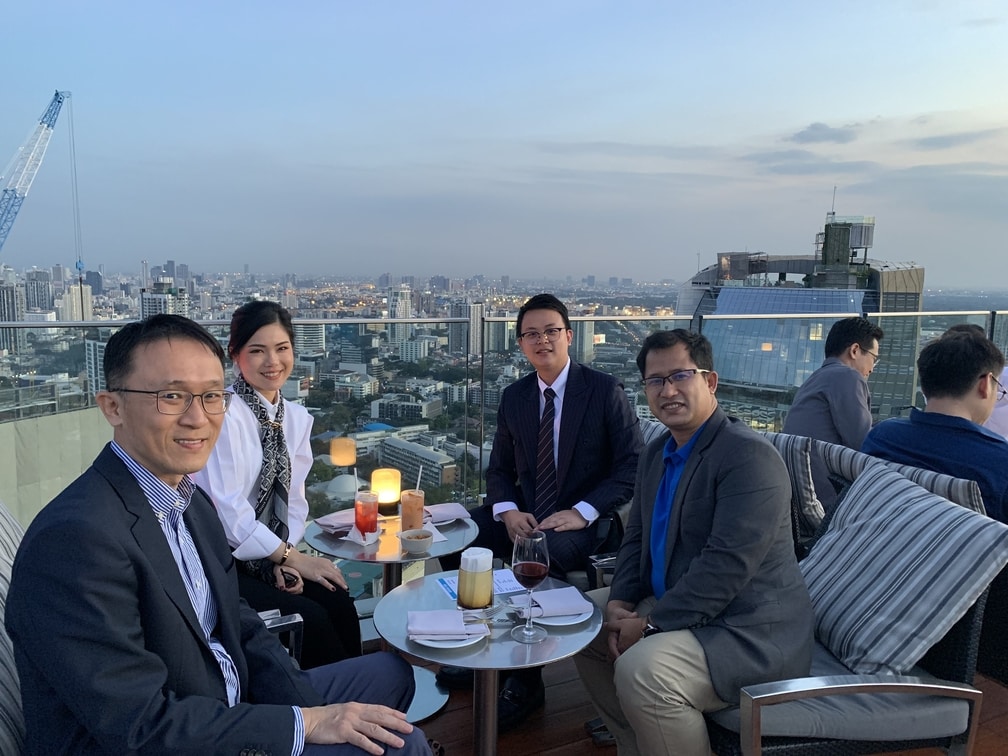 Most of our team members now are technical and can make detailed presentations about the products. In the future, we want to divide into enterprise sales and channel partner sales. Enterprise sales will focus on our key account development and solution delivery. Channel partner sales will focus on shipping out our products and solution selling. For both types of sales, we need a talented salesforce.
Most of our team members now are technical and can make detailed presentations about the products. In the future, we want to divide into enterprise sales and channel partner sales. Enterprise sales will focus on our key account development and solution delivery. Channel partner sales will focus on shipping out our products and solution selling. For both types of sales, we need a talented salesforce.
When choosing leaders I look for people who are open-minded and willing to take on new challenges. We work together and I mentor them to slowly build up their competencies as a leader. Over the past years, our leaders have made big improvements in both strategy and the approach to our customers.
The most important thing for any leader is to find out how to gain our customer’s trust. You can use different approaches but you need to get good results. Only when we gain customer trust in our product/solution, quality, response and service, we can continue to have sustainable business growth.
With COVID travel restrictions in place, how do you spend Spring Festival and other holidays in Thailand?
This year I spent the Chinese New Year with my wife and daughter in Thailand as the COVID-19 travel restrictions make it inconvenient to return to Taiwan. We live a quiet life in the suburbs of Bangkok so the festival was just another relaxing weekend. We did go to a local temple to offer prayers for the New Year.
On weekends I usually spend time with my family and work around my house. Although I play golf, it takes a lot of time so these days I prefer to watch the pros play it on YouTube or catch a major league baseball game on TV. I’m also a big aviation fan and build all sorts of plane models from civilian to commercial aircraft. To keep fit I do jogging.
Is there anything you would like to share with your Delta colleagues in Thailand and around the world?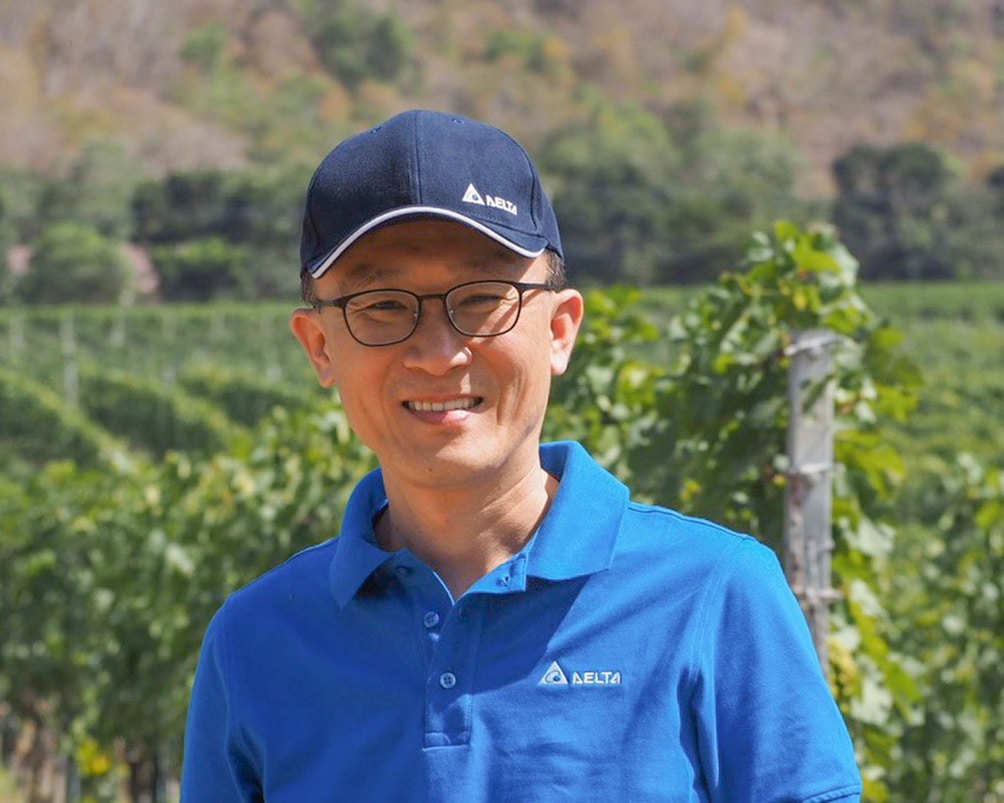 I’d like to encourage everyone to: Step out your comfort zone and take on new challenges. If you spread out your wings and just try new things in different environments, you will see growth.
I’d like to encourage everyone to: Step out your comfort zone and take on new challenges. If you spread out your wings and just try new things in different environments, you will see growth.
Remember, we can only make progress in life when we are pushing ourselves to move forward and not accept stagnation. So please try to keep making changes and learn from them to become a better person.
